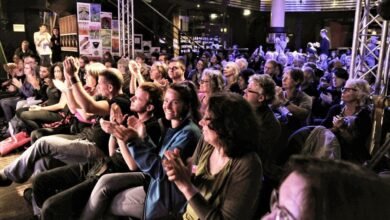Labour’s sensibles are starting to push back—but they should push harder

By BAGEHOT

THE political implications of the attacks in Paris are only just starting to unfurl. But there are early indications that one might be the accelerated growth of (ultimately inevitable) splits in the Labour Party. Jeremy Corbyn’s response to the ensuing debates has cemented the impression—as if any cement were needed—that Labour’s newish leader is out of his depth, ambivalent about things that should be clear and craven to the ugly blend of sanctimony and moral relativism whose sudden metastasis through his party propelled him to its leadership in September. Mr Corbyn’s insistence that his MPs will not get a free vote on British intervention in Syria, his initial opposition (since reversed) to the use of lethal force in situations like that in Paris and his proximity to the anti-West Stop the War group have fired up MPs who were previously tolerating him, or at least biding their time before he fell.
Last night’s meeting of the Parliamentary Labour Party was, by all accounts, a rebarbative affair in which Mr Corbyn gave vague and unsatisfactory answers and was at times shouted down by his MPs. As if they needed any confirmation of the gormless narcissism now at the helm of their party, some were infuriated when Diane Abbott, the shadow development secretary and one of the few MPs who really supports her leader, started working through a pile of correspondence as debate about Syria raged around her.
Today brought another show of defiance by the sensibles. During a sombre Commons session on the Paris attacks they rose, one-by-one, and gave voice to universalist, liberal, inquisitorial instincts too often absent on the part of Labour’s leadership. Emma Reynolds asserted that the guilt for the attacks lay solely with the attackers (that this even needs saying in today’s Labour is an indication of the moral depths in which the party now lurks). Pat McFadden noted that claiming anything else means “infantilising terrorists and treating them as children”. Mike Gapes urged the prime minister to offer immediate air support for the Kurds. Chuka Umunna echoed Mr Cameron’s commitment to national security and urged him to set out the framework by which British police may use lethal force.
Mr Corbyn is unlikely to go any time soon. He won a huge mandate in September. Moreover, the overwhelming consensus on the moderate wing of the Labour Party is that he should fall, rather then be toppled. Only then, the thinking goes, will a reasonable number of his supporters think again about the nutty politics for which they voted (perhaps, in many cases, as a protest rather than a positive endorsement) and support a more modern, grounded alternative.
Still, the last few days matter for Labour because they have moved the party a little closer to the recognition that its leader is hopeless. This may be accentuated early next month, at the Oldham West and Royton by-election. One of the starkest claims made by Mr Corbyn’s supporters in the leadership campaign was that his straight-talking style would help the party win back Old Labour voters in seats where the populist UK Independence Party is now a serious presence. The by-election will put this to the test and—if my visit to the seat last week is anything to go by—find it wanting. To quote from my column:




